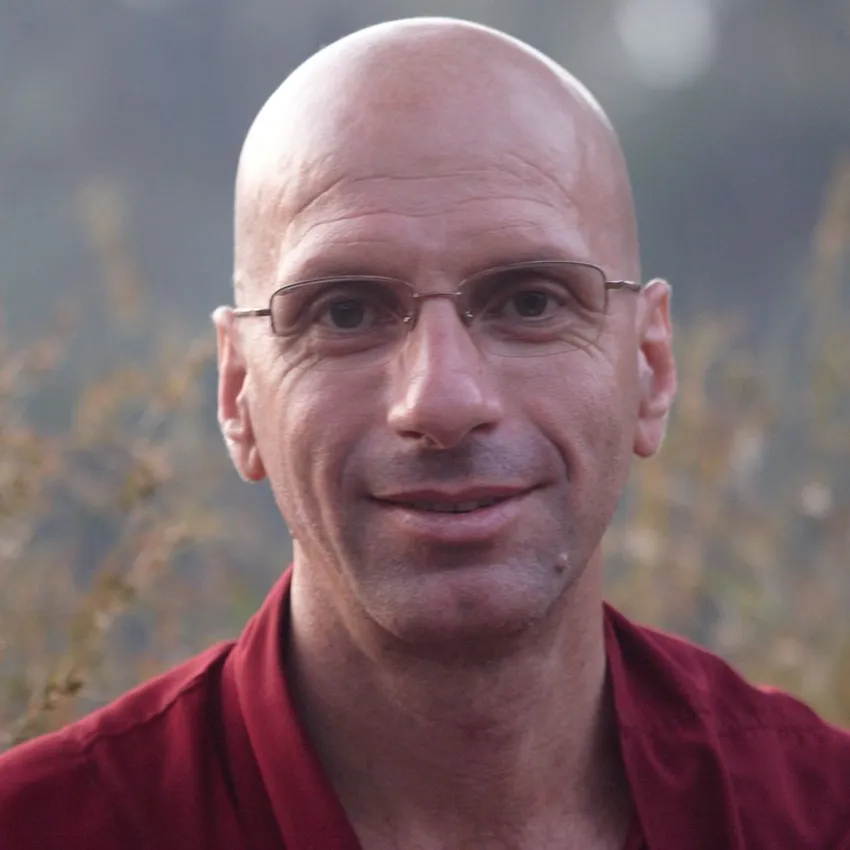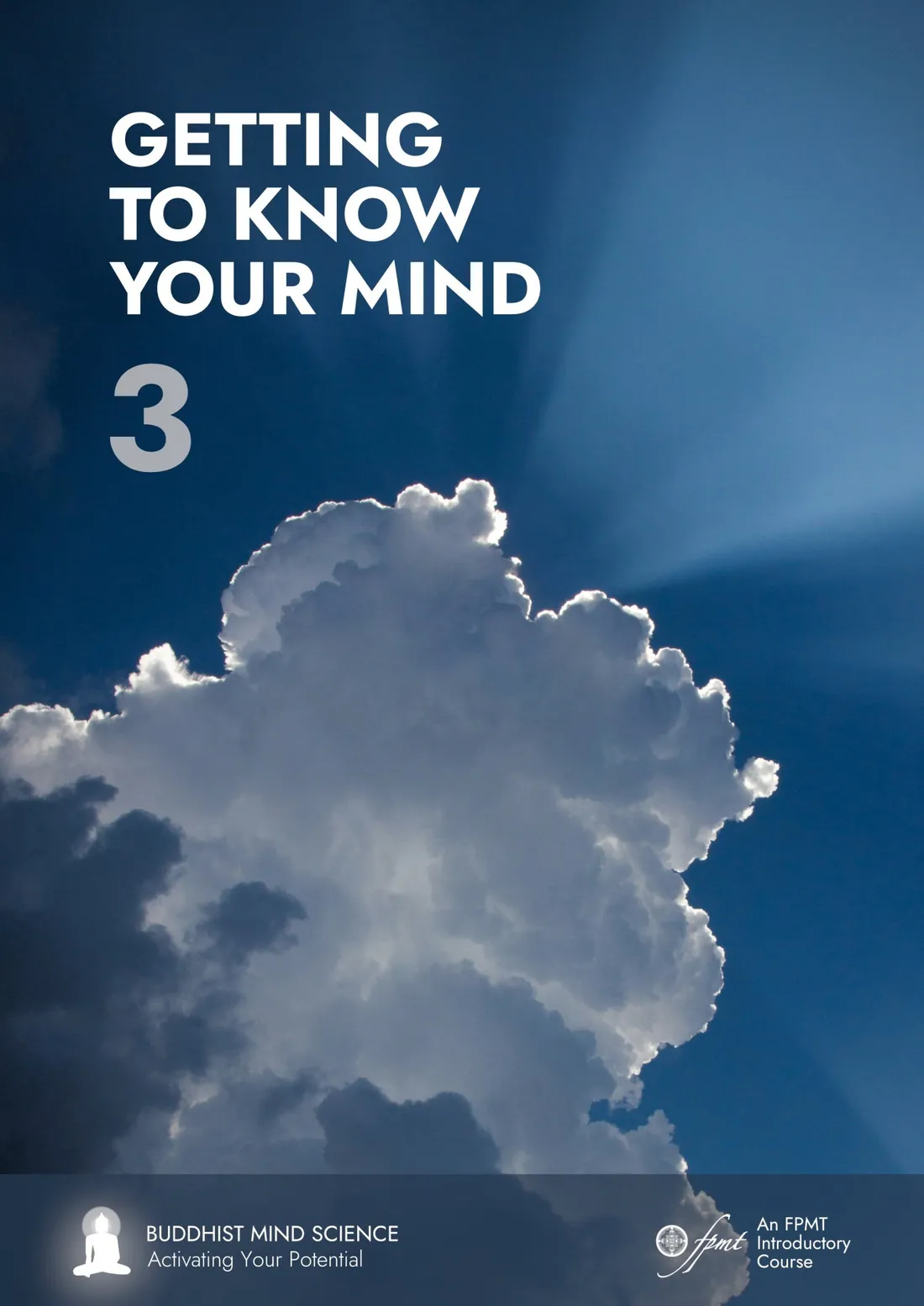Buddhist Mind Science, Module 3
Getting to Know Your Mind
Four Sundays
July 27 and August 10, 24, 31
10:30am – 12:30pm PDT (Pacific Daylight Time)
in-person only
Program Category: Dharma Education — Introductory
No prior experience necessary.
Everybody is welcome.
Join us and embark on a journey to transform the mind.
Read more about the FPMT introductory course
Buddhist Mind Science: Activating Your Potential.
Getting to Know Your Mind
What is our mind? What are the afflictions that obscure our
inner potential? Can they be removed? Why do we often
struggle with the same mental patterns? How deep and vast is
the potential of our mind?
We will explore such questions from an experiential point of
view, using both scientific and Buddhist knowledge of the
mind and meditation, in a journey that may translate into
increasing lasting happiness and a positive impact on
oneself, others, and the world.
The course “Getting to know your mind” focuses on an
exploration of the mind to understand what it is, its
characteristics, and how can we become more aware of our
mental processes and of our mind itself. It also deepens
into techniques to diminish mental afflictions, and reflects
on the possibility of the continuity of the mind and on
karma. It is complemented by references to some current
scientific understanding on the mind.
The Journey
“Getting to know your mind” gradually unfolds as a journey along different topics:
- Refining attention deepens into stabilizing meditation by presenting obstacles and qualities to cultivate when meditating in calming our minds.
- Introducing the nature of the mind challenges our understanding of what the mind is by presenting the mind and its nature from a Buddhist perspective, with practices to put it under examination by meditating on the nature of mind.
- How the mind is stained explores how, despite the nature of the mind is pure, afflictions arise and obscure us from seeing its deep nature.
- Removing the stains from the mind presents strategies to diminish the power of afflictions so that we find better well-being and conducive conditions to further explore the mind and its possibilities.
- Exploring the depth, vastness, and continuity of the mind explores the depth and vastness of the mind and continues to challenge us by suggesting an investigation about the possibility of the continuation of mind after this life.
- The continuity of actions presents the notion of karma, how our actions leave an imprint that conditions us, and the role of intention in this process. It concludes with an exploration of the value of this life under these perspectives.

Geshe Tenzin Legtsok has been ordained as
a Buddhist monk since 2001 and is the first American to
complete the twenty-year Geshe Studies Program in classic
Indian Buddhist treatises and their Tibetan commentaries at
Sera Jey Monastic University
in South India, following
the tradition of ancient Nalanda University. In 2025, he
completed the traditional study of tantra at
Gyudmed Tantric Monastery.
With over two decades of study and practice under the
guidance of great masters, including His Holiness the
Dalai Lama and Kyabje Lama Zopa Rinpoche, Geshe Legtsok
brings profound insights into the application of Buddhist
teachings. Born in Virginia, USA in 1973, he earned a
Bachelor of Arts from Kenyon College in 1995. His quest to
answer the question, “What makes for the most happy and
meaningful life,” led him to major in philosophy,
eventually guiding him to study meditation and philosophy
with teachers among the exiled Tibetan communities in
India and Nepal since 1999.
Dedicated to studying and teaching Buddhist philosophy,
Geshe Legtsok seamlessly blends ancient wisdom with
modern-day relevance. His teachings emphasize
understanding and transforming the mind through practice,
and he is committed to helping others navigate the
spiritual path with clarity and patience.
Registration
Suggested Donation: $100 for the entire course or $25 for a single session.
All our Dharma teachings and events are offered on a
dana (generosity) basis
— in the spirit of giving freely, just
as the Buddha taught. This is a beautiful opportunity to support
the teachings and open your heart through generosity.
There is no charge to attend, and no one is turned away. While
teachings are free, your support helps keep the Center running
and makes these precious teachings available to others. We have
included suggested donation amounts to help guide your offering.
Ordained sangha are warmly welcome to attend free of charge.
If you are not able to donate at this time, please email
office@oceanofcompassion.org.
Thank you for joining in this shared act of support. We rejoice for you.
